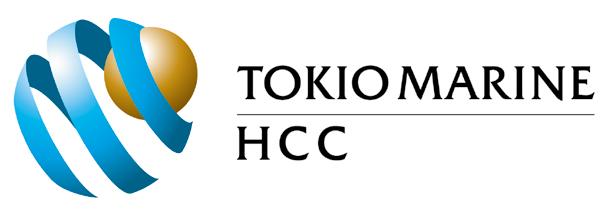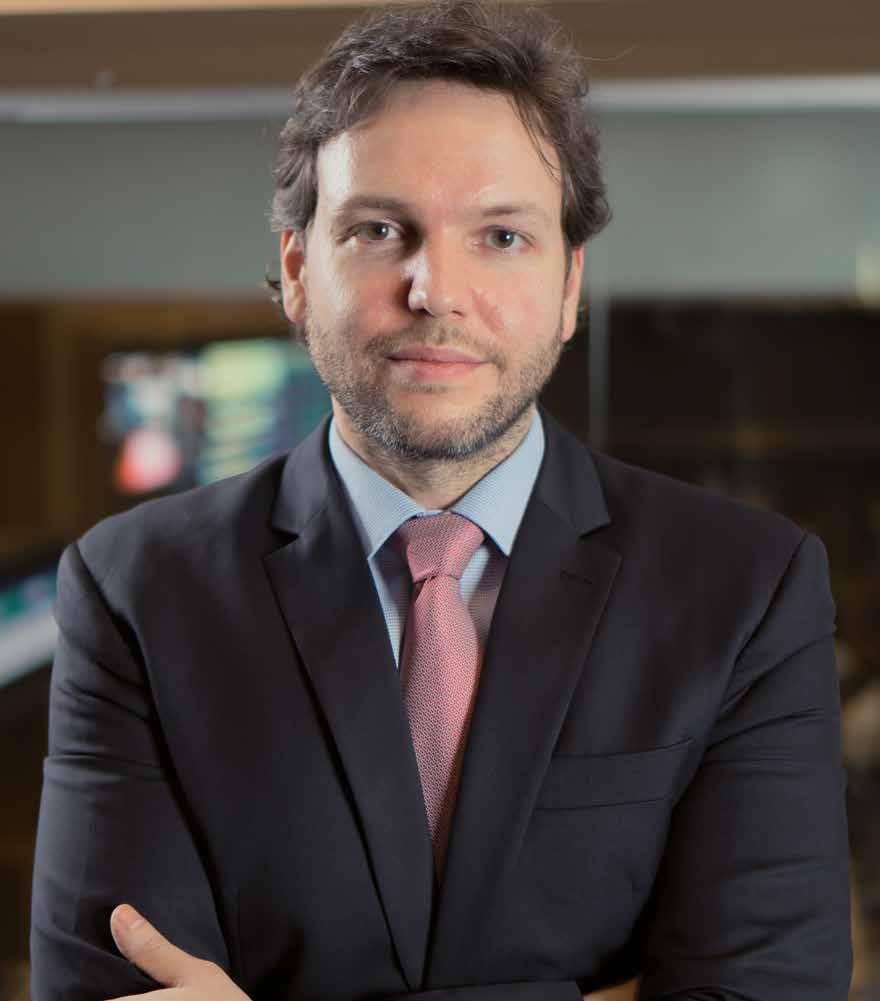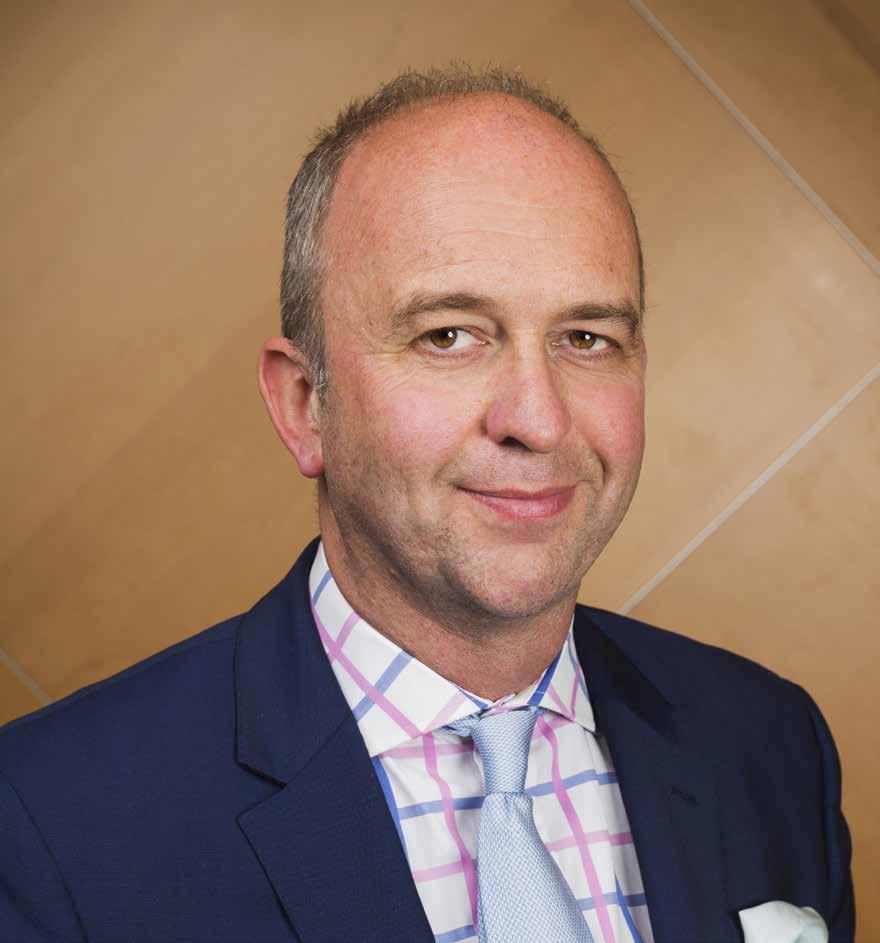
5 minute read
Column Stefaan van Boxstael
decision-making. Obviously both angles, the pure data driven decision making which can be taken over by computer models and the human element should be combined. The challenge is to find the magic formula with the right combination. In many emerging countries the quality of data is still too poor to allow the development of useful scoring models so there the human factor will be a much more dominant part than for most mature countries.
It is inevitable that more and more fields of finance once dominated by human beings will be partly taken over by machines and algorithms. The New York trading desk of Goldman Sachs employed some 600 traders buying and selling stock at the beginning of this century. Today there are 2 traders, automated trading programs have taken over the rest of the work, supported by 200 computer engineers. I personally don’t believe we should follow this example to this extent in the credit insurance industry, especially not when underwriting risk in the more difficult countries and sectors.
Advertisement
An equally challenging topic, regardless of up to which level machines and algorithms might take over, is the discussion on whether underwriting should take place close to the debtor or rather not? For many credit insurers a large part of their business model involves supporting trade within the country of the supplier or towards neighboring countries. In such case the customer will most likely be served by underwriters close to the debtors. But when you have clients doing business worldwide you need to make choices: a decentralized model with underwriters spread over countries worldwide or rather a centralized structure with all underwriting knowledge and capacity in the headquarter? At first sight it looks as if underwriting close to where the debtor is located is the wise approach from a risk management perspective. In my experience however local underwriters sometimes tend to be too enthusiastic about “their” debtors and even fail to see part of the risk, especially when it involves political and commercial risk insurance for cross border trade, merely because risk is not always perceived the same way by people inside or outside of a given country. And when the business model includes a decent level of service to the client which translates amongst other things into access for the client to the underwriter it is much better perceived by most clients when they can speak to one dedicated underwriter in their own language in their own country.
Does this mean it would not be good practice to underwrite risk close to the debtor? Of course not, local underwriters do spot risks offshore underwriters will miss. But it is not the only way and not always the ideal structure. With unlimited resources a combination of debtor centric underwriting with dedicated-to-the client underwriters working in tandem seems to be the ideal set up. Unfortunately no such thing as unlimited resources exists. So choices have to be made, evaluated and adapted based on experiences.
The same story goes for our clients when they are active in different countries and continents. They also have to make up their mind on the optimal credit management structure: centralized or decentralized. And many of them change their minds over time. So maybe in a few years from now the credit insurers with debtor centric underwriting models will have moved towards a centralized structure and the others might have evolved the other way around…
Optimizing the underwriting organization is a continuous challenge in our business. But it is the core of our business!
I kindly pass the pen to Martin Hochstrasser, Underwriting Director Global Credit and Surety Reinsurance at XL Catlin, to share his thoughts with the readers of The ICISA Insider.
Interview with Mr. Thiago Moura, President and Associate Partner, kindly agreed to answer a few questions regarding the membership of ICISA
New Member BTG Pactual Resseguradora S.A.
Could you please share some key facts about BTG Pactual with the readers? “BTG Pactual was founded in 1983 as a brokerage house in Brazil, commenced banking activities in 1989, expanded its franchise over the 1990s and 2000s, finally going public through an IPO in 2012 in the Brazilian stock exchange (primary capital increase of R$ 3.2 Bi). Over the last few years the group has expanded geographically, becoming the leading investment bank in Latin America, and began in 2013 its insurance business through BTG Pactual Resseguradora S.A.
BTG Pactual Resseguradora S.A. was established in April 2012 and obtained authorization to operate as a local reinsurer from SUSEP (Brazilian Superintendency of Private Insurance) without restrictions on the 21st of February of 2013. After final corporate formalities required by the respective regulations, BTG Pactual Resseguradora S.A. started its activities on the 1st of May of 2013. The company has operated almost exclusively as a captive reinsurance company, reinsuring risks / policies issued by BTG Pactual Seguradora S.A. and / or Pan Seguros S.A., primarily in surety within the Brazilian surety market. Additionally, BTG Pactual Resseguradora S.A. has been very active in retrocession of risks, both through automatic and facultative contracts, maintaining strong relationships with local and international retrocedants.
BTG Pactual Resseguradora S.A.’s long term goals are to maintain steady and responsible growth of the financial risks business in the Brazilian market, with a potential expansion of this business into other Latin American countries in the near future.”
What do you expect from the ICISA membership? “We approach our membership to ICISA as an opportunity to learn and further our understanding of surety and credit insurance in the international marketplace. We strongly believe that one of the main strengths of this association relies in its ability to create a forum and opportunities for members to share their experiences, thereby enhancing the ability of its members to make efficient and profitable business across the globe.”
Are there topics you would like to discuss within ICISA? “Given our specific expertise in surety in Brazil, we are eager to discuss the growth potential and development possibilities for this market. We believe this market, while growing at a steady rate and in a profitable manner, can still advance in terms of structures, coverages and product diversification in order to reach its maturity.”






